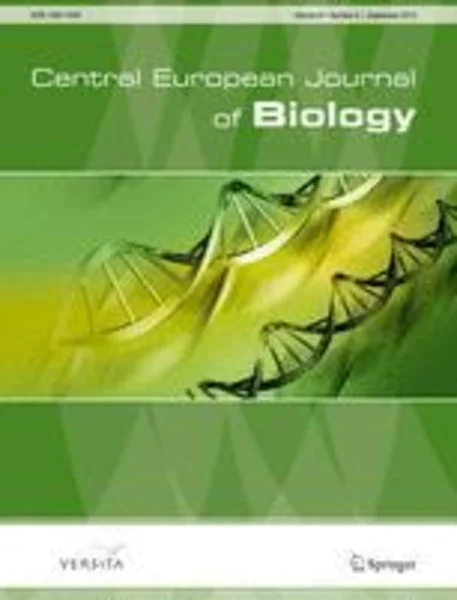-
impact of the genes ugt1a1, gstt1, gstm1, gsta1, gstp1 and nat2 on acute alcohol-toxic hepatitis
جزئیات بیشتر مقاله- تاریخ ارائه: 1392/07/24
- تاریخ انتشار در تی پی بین: 1392/07/24
- تعداد بازدید: 909
- تعداد پرسش و پاسخ ها: 0
- شماره تماس دبیرخانه رویداد: -
alcohol metabolism causes cellular damage by changing the redox status of cells. in this study, we investigated the relationship between genetic markers in genes coding for enzymes involved in cellular redox stabilization and their potential role in the clinical outcome of acute alcohol-induced hepatitis. study subjects comprised 60 patients with acute alcohol-induced hepatitis. the control group consisted of 122 healthy non-related individuals. eight genetic markers of the genes ugt1a1, gsta1, gstp1, nat2, gstt1 and gstm1 were genotyped. gstt1 null genotype was identified as a risk allele for alcohol-toxic hepatitis progression (or 2.146, p=0.013). it was also found to correlate negatively with the level of prothrombin (β= −11.05, p=0.037) and positively with hyaluronic acid (β=170.4, p=0.014). nat2 gene alleles rs1799929 and rs1799930 showed opposing associations with the activity of the biochemical markers γ-glutamyltransferase and alkaline phosphatase; rs1799929 was negatively correlated with γ-glutamyltransferase (β=−261.3, p=0.018) and alkaline phosphatase (β= −270.5, p=0.032), whereas rs1799930 was positively correlated with γ-glutamyltransferase (β=325.8, p=0.011) and alkaline phosphatase (β=374.8, p=0.011). enzymes of the glutathione s-transferase family and nat2 enzyme play an important role in the detoxification process in the liver and demonstrate an impact on the clinical outcome of acute alcohol-induced hepatitis.
مقالات جدیدترین رویدادها
-
استفاده از تحلیل اهمیت-عملکرد در ارائه الگوی مدیریت خلاقیت سازمانی و ارائه راهکار جهت بهبود
-
بررسی تاثیر ارزش وجوه نقد مازاد بر ساختار سرمایه شرکت های پذیرفته شده در بورس اوراق بهادار تهران
-
بررسی تأثیر سطح افشای ریسک بر قرارداد بدهی شرکت های پذیرفته شده در بورس اوراق بهادار تهران
-
بررسی تأثیر رتبه بندی اعتباری مبتنی بر مدل امتیاز بازار نوظهور بر نقد شوندگی سهام با تأکید بر خصوصی سازی شرکت ها
-
تأثیر آمیخته بازاریابی پوشاک ایرانی بر تصویر ذهنی مشتری پوشاک ایرانی (هاکوپیان)
-
بررسی نقش خودکارآمدی کنترل احساس، علائم افسردگی و استرس پس از سانحه بر خطر ابتلا به خودکشی در میان نوجوانان شهرستان کرمانشاه
-
برآورد حدود آتربرگ رس های مورد استفاده در هسته رسی سدها با استفاده از شبکه های عصبی مصنوعی (مطالعه موردی: منبع قرضه هسته رسی سد مخزنی آغ چای)
-
جهت های جغرافیایی مطالعات اجتماعی پایه چهارم ابتدایی
-
تعیین فشار، تنش موثر و شتاب در راستای قائم تونل مدفون در خاک ماسه ایی تحت تاثیر انفجار سطحی
-
on the behavior of nitrogen in a low-ni high-mn super duplex stainless steel
مقالات جدیدترین ژورنال ها
-
مدیریت و بررسی افسردگی دانش آموزان دختر مقطع متوسطه دوم در دروان کرونا در شهرستان دزفول
-
مدیریت و بررسی خرد سیاسی در اندیشه ی فردوسی در ادب ایران
-
واکاوی و مدیریت توصیفی قلمدان(جاکلیدی)ضریح در موزه آستان قدس رضوی
-
بررسی تاثیر خلاقیت، دانش و انگیزه کارکنان بر پیشنهادات نوآورانه کارکنان ( مورد مطالعه: هتل های 3 و 4 ستاره استان کرمان)
-
بررسی تاثیر کیفیت سیستم های اطلاعاتی بر تصمیم گیری موفق در شرکتهای تولیدی استان اصفهان (مورد مطالعه: مدیران شرکتهای تولیدی استان اصفهان)
-
رویکرد داده کاوی برای برنامه ریزی فرآیند مبتنی بر دانش
-
بررسی نقش رهبری معنوی بر چابکی سازمانی
-
بررسی تأثیر مالکیت نهادی بر نوسان پذیری قیمت و بازدهی سهام
-
بررسی پیش آینده ای برداشت از سیاست سازمانی
-
structural behavior of pipelines buried in expansive soils under rainfall infiltration (part i: transverse behavior)




سوال خود را در مورد این مقاله مطرح نمایید :